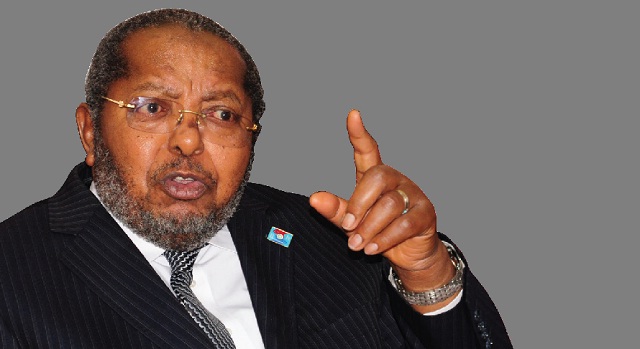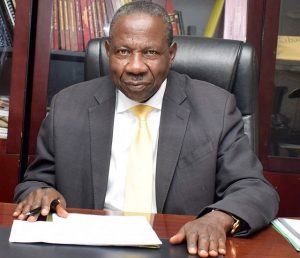
Its managers must not focus on 2020 but on long term solutions, expert says
Kampala, Uganda | JULIUS BUSINGE | Uganda’s economy is projected to remain subdued in 2020, signaling another challenging economic environment ahead.
Emmanuel Tumusiime-Mutebile, the governor Bank of Uganda revealed that 2019’s projected growth of 5.5-6.0% is likely to be sustained into this New Year.
Referring to BoU’s detailed Monetary Policy Report for December of last year, the central bank boss said economic growth is likely to average about 6% during 2020-2024 lower than the earlier projection of 6.5%, reflecting partly to the effects of global developments and delays in Foreign Direct Investments (FDI).
The report says the major downside risks to economic growth include; increase in global tensions and uncertainty especially between the US, China and now Iran, coupled with the deceleration of world economic growth and the decrease in trade volumes.
The other risks include; slowing private sector credit growth, contracting exports, capital and raw materials imports, and weather that could affect the agricultural sector.
However, the report adds that investment could expand at a moderate pace in FY2019/20-FY2020/2021.
The slowdown in GDP growth could result into reduced economic activity and increase inflationary pressures.
This will ultimately lead to slow industrial growth and so is job creation to the local population.
However, Mutebile said public sector financing needs have risen amidst limited fiscal space, raising the prospect of further pressure on the domestic borrowing costs.
Over the medium term, Mutebile said monetary and fiscal impetus is expected to boost private sector investment and thus support GDP growth.
Inflation outlook
The inflation outlook remains unchanged from the October 2019 forecast as annual core inflation is projected to remain below the 5 percent target.
The BoU report notes that the risks to the inflation outlook in the near term (12 months ahead) would largely be positive. However, due to unpredictable weather patterns, food price inflation remains uncertain.
A further upside risk to the inflation outlook is capital flow volatility which could put pressure on the exchange rate.
On the downside, demand pressures remain subdued. Nonetheless, inflation is forecast to converge to the target of 5 percent in the medium-term (2-3 years).
 Expert views
Expert views
Corti Paul Lakuma, a research fellow at the macroeconomic department at the Economic Policy research Centre at Makerere University told The Independent that a growth rate of 5% is not bad either.
He said, weather patterns are key in determining the 2020 economy. He said seasons have changed and that might affect the crop economy where 80% of the population is engaged.
Lakuma said the global economy relating to the escalating tensions between the US and Iran is likely to affect global energy prices.
“For countries that depend on imports like Uganda does for energy requirements [crude petroleum] will see prices escalating and that will affect growth,” he said.
Commodities like gold are also not doing well in terms of pricing, he said. He added that Uganda’s projected growth of 5-6% is higher than the anticipated Africa economy growth of 3% – which is good news.
“…so generally speaking the economy is going to do well but not as well as expected,” he added.
So what should those driving the economy do to keep the fire burning? Lakuma said, they should look at the long term solutions and not the 2020 short term solutions.
“Shifting from weather dependent economy to one where you control the situation is not easy,” he said, adding that investment in infrastructure, irrigation, use of fertilizer and other agriculture inputs need to be embraced.
He also said the government needs to fight and maintain a stable exchange rate so that import prices do not escalate and affect the industrial sector.
For services sector, the government needs to maintain peace and security so that tourists can continue coming in and other sectors are not affected especially during the election period.
“It is a combination of policy interventions,” he said.
Beyond the frontline economy drivers, Lakuma said everyone should continue playing their part – the police should continue keeping law and order, the ministry of finance technocrats should keep the budgets good, the people in agriculture ministry and line agencies should ensure that fertilizers and other needed inputs are well sourced and distributed; people who are building roads and power dams should continue doing so and more.
In the end, experts say that what the government spends on in 2020 and, what the central bank does to control prices will go a long way in influencing the performance of the economy through economic indicators like the exchange rate, inflation, interest rates, private sector credit and more.
****
 The Independent Uganda: You get the Truth we Pay the Price
The Independent Uganda: You get the Truth we Pay the Price


